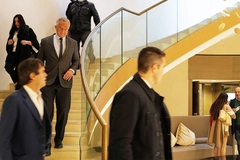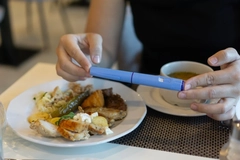
- Industry news
Industry news
- Category news
Category news
- Reports
- Key trends
- Multimedia
- Journal
- Events
- Suppliers
- Home
- Industry news
Industry news
- Category news
Category news
- Reports
- Key trends
- Multimedia
- Events
- Suppliers
“Minimal Progress Since Horsemeat Scandal,” says RSSL

20 Feb 2014 --- Ongoing issues with mislabelling and fraud in the food industry shows that few lessons have been learnt by manufacturers and producers since last year’s horsemeat scandal, according to ingredient authentication specialist, Reading Scientific Services Ltd (RSSL).

But despite the continued emergence of food fraud, RSSL said it is experiencing increased demand by manufacturers for the testing of ingredients that are vulnerable to substitution or adulteration – in particular, the authentication of fish, specialty oils and meat.
Recent testing commissioned by West Yorkshire Councils highlighted an alarming number of instances of mislabelled food products, and this week has seen further reports of more than 1200 tonnes of fake food seized as part of an Interpol-Europol investigation.
The Europol Operation Opson III is reported to have highlighted supply chain issues, mislabelling and deliberate fraud on a large scale, surrounding products ranging from fish and seafood to oil and vinegar. Meanwhile in the UK specifically, over one third of the foodstuffs tested in West Yorkshire were misleadingly labelled, with issues ranging from illegal additives to the use on pizzas of “cheese analogue” – which is made with vegetable oil rather than dairy fat.
Of particular concern, given last year’s horsemeat scandal, was how often cheaper meats were found being passed off as more expensive products: poultry labelled as ham, pork as beef, and beef as ham, said RSSL. This comes as the EU plans for a second round of testing for horsemeat.
“These findings highlight the importance for food manufacturers of a regular testing programme to ensure the authenticity of their ingredients and reliability of the supply chain,” the company said.
As a multi-disciplinary laboratory with many years’ experience in product and ingredient authentication, RSSL can support manufacturers, suppliers and retailers in maintaining the integrity, quality and safety of products.
Meanwhile, earlier this week it was announced that three UK companies (including RSSL) had secured government funding to accelerate the development of a new test to combat food fraud. The test will detect any DNA in processed foods coming from at least 12 different animal species, including some not normally associated with the food chain. By quantifying the relative amounts of DNA, the test will also indicate the severity of any contamination or deliberate adulteration.
The one-year project is collaboration between Safeguard Biosystems Holdings Ltd (SG Bio), Reading Scientific Services Ltd (RSSL) and Arrayjet Ltd (Arrayjet). Its potential impact was recognised by the UK’s innovation agency, the Technology Strategy Board, who will co-fund it with the Food Standards Agency and the Department for Food, Environment and Rural Affairs. Additional funding is provided by the three companies.
This new test is based on proprietary DNA detection technology, developed by the lead partner SG Bio, and will allow identification and quantification of Cow, Pig, Chicken, Horse, Goat, Sheep, Turkey, Donkey, Dog, Cat, Rat and Mouse in foods.
The principle of the test is to identify the targeted DNA sequences in a given food sample and then to calculate the ratio of different species within a sample to establish whether adulteration or contamination has occurred.
The new test aims to reduce the cost and time of food testing so that it becomes possible to routinely check all points in the supply chain. The currently available tests are limited by cost and time. The key to speeding up the process and bringing down costs is making it high-throughput.
It will do this by taking advantage of microarray technology, which enables biological tests to be miniaturised and multiplexed. This allows multiple DNA tests to be carried out on a single sample simultaneously, whilst also enabling multiple food samples to be processed in parallel.
The project has been designed collaboratively utilising SG Bio’s DNA expertise, Arrayjet’s printing specialisation and RSSL’s (a certified food-testing laboratory) expertise in food authenticity.
By Sonya Hook









